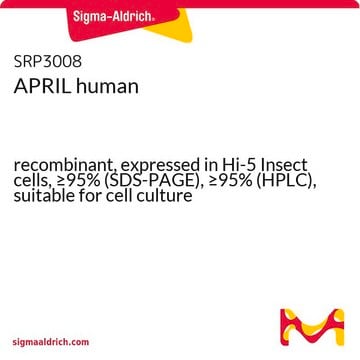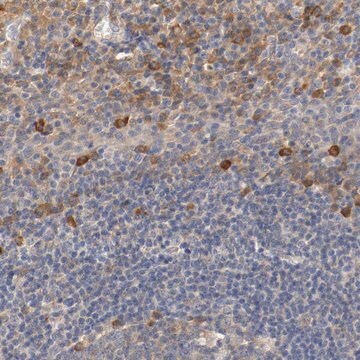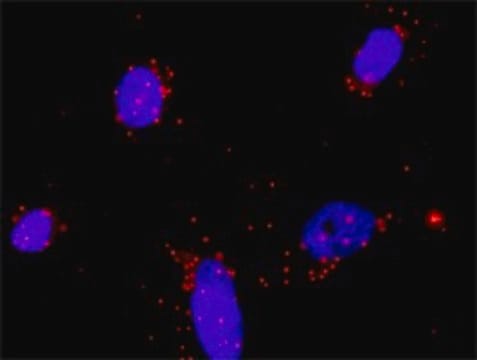MABC1031
Anti-TNFSF13 (APRIL) Antibody, clone A3D8
clone A3D8, from hamster(Armenian)
Sinónimos:
A proliferation-inducing ligand, APRIL, CD256, TALL-2
About This Item
Productos recomendados
biological source
hamster (Armenian)
Quality Level
antibody form
purified immunoglobulin
antibody product type
primary antibodies
clone
A3D8, monoclonal
species reactivity
human, mouse
technique(s)
flow cytometry: suitable
isotype
IgG
NCBI accession no.
UniProt accession no.
shipped in
ambient
target post-translational modification
unmodified
Gene Information
mouse ... Tnfsf13(69583)
Categorías relacionadas
General description
Specificity
Immunogen
Application
Apoptosis & Cancer
Quality
Flow Cytometry Analysis: 1 µg of this antibody detected TNFSF13 in human PBMC cells.
Target description
Physical form
Storage and Stability
Other Notes
Disclaimer
¿No encuentra el producto adecuado?
Pruebe nuestro Herramienta de selección de productos.
Storage Class
12 - Non Combustible Liquids
wgk_germany
WGK 2
Certificados de análisis (COA)
Busque Certificados de análisis (COA) introduciendo el número de lote del producto. Los números de lote se encuentran en la etiqueta del producto después de las palabras «Lot» o «Batch»
¿Ya tiene este producto?
Encuentre la documentación para los productos que ha comprado recientemente en la Biblioteca de documentos.
Nuestro equipo de científicos tiene experiencia en todas las áreas de investigación: Ciencias de la vida, Ciencia de los materiales, Síntesis química, Cromatografía, Analítica y muchas otras.
Póngase en contacto con el Servicio técnico








